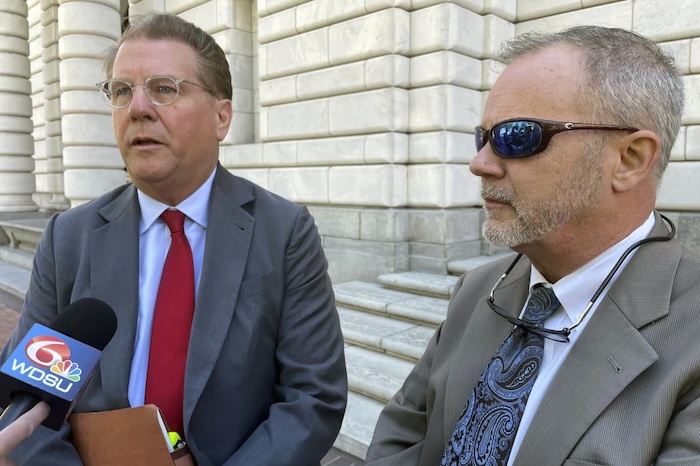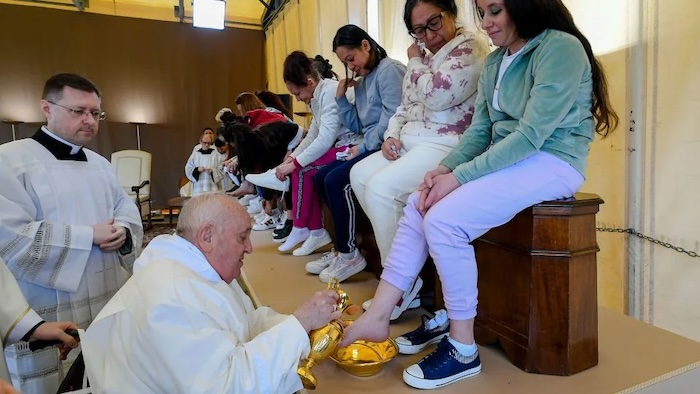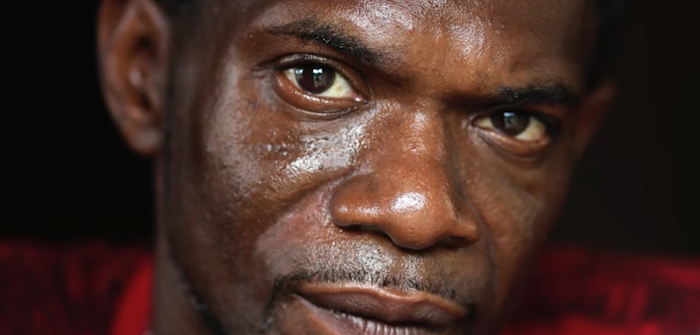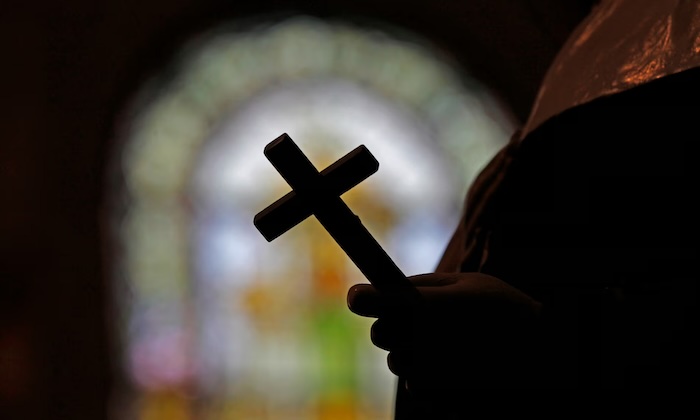
By KEVIN McGILL
A New Orleans attorney facing a $400,000 court penalty for warning a school principal and a reporter about a high school chaplain who was suspected of being a sexual predator took his case to a federal appeals court Wednesday.
Richard Trahant, who represents victims of clergy abuse, acknowledges having told a reporter to keep the chaplain “on your radar,” and that he asked the principal whether the person was still at the school. But, he said in a Tuesday interview, he gave no specific information about accusations against the man, and did not violate a federal bankruptcy court’s protective order requiring confidentiality.
It’s a position echoed by Trahant’s lawyer, Paul Sterbcow, under questioning from members of a three-judge panel at the 5th U.S. Circuit Court of Appeals.
“Here’s my problem. I think I have a moral obligation to disclose something I find out about someone to protect them,” said Judge Priscilla Richman. “But the court has said unequivocally, ‘You are under a protective order. You cannot violate that protective order.’ I do it knowingly. I may have good intentions, but I do it knowingly. To me, that’s an intentional, knowing violation of the order.”
“Our position is that there was no protective order violation,” Sterbcow told Richman, emphasizing that Trahant was cautious, limiting what he said. “He’s very careful when he communicates to say, I’m constrained by a protective order. I can’t do this. I can’t do that, I can’t reveal this, I can’t reveal that.”
Outside court, Sterbcow stressed that it has been established that Trahant was not the source for a Jan. 18, 2022, news story about the chaplain, who had by then resigned. Sterbcow also said there were “multiple potential violators” of the protective order.
The sanctions against Trahant stem from the Roman Catholic Archdiocese of New Orleans’ filing for Chapter 11 bankruptcy protection in 2020 amid growing legal costs related to sexual abuse by priests. The bankruptcy court issued a protective order keeping vast amounts of information under wraps.
In June 2022, U.S. Bankruptcy Court Judge Meredith Grabill ruled that Trahant had violated the order. In October of that year she assessed the $400,000 penalty — estimated to be about half the cost of investigating the allegations of the alleged protective order violation.
The appeal of the bankruptcy court order first went to U.S. District Judge Greg Guidry, who upheld the sanctions. But Guidry later recused himself from handling matters involving the bankruptcy case after an Associated Press report showed he donated tens of thousands of dollars to the archdiocese and consistently ruled in favor of the church in the case involving nearly 500 clergy sex abuse victims.
The bankruptcy case eventually was assigned to U.S. District Judge Barry Ashe, who last year denied Trahan’s motion to vacate the sanctions.
Richman at one point in Wednesday’s arguments, suggested that Trahant should have asked Grabill for an exemption from the protective order rather if he thought information needed to get out. It was a point Attorney Mark Mintz, representing the archdiocese, echoed in his argument.
“If we really thought there was a problem and that the debtor and the court needed to act, all you have to do is pick up the phone and call,” Mintz said.
Sterbcow said Trahant was concerned at the time that the court would not act quickly enough. “Mr. Trahant did not believe and still doesn’t believe — and now, having reviewed all of this and how this process worked, I don’t believe — that going to the judge was going to provide the children with the protection that they needed, the immediate protection that they needed,” Sterbcow said told Richman.
The panel did not indicate when it would rule. And the decision may not hinge so much on whether Trahant violated the protective order as on legal technicalities — such as whether Grabill’s initial finding in June 2023 constituted an “appealable order” and whether Trahant was given proper opportunities to make his case before the sanction was issued.
Richman, nominated to the 5th Circuit by former President George W. Bush, was on the panel with judges Andrew Oldham, nominated by former President Donald Trump, and Irma Ramirez, nominated by President Joe Biden.
Complete Article ↪HERE↩!




